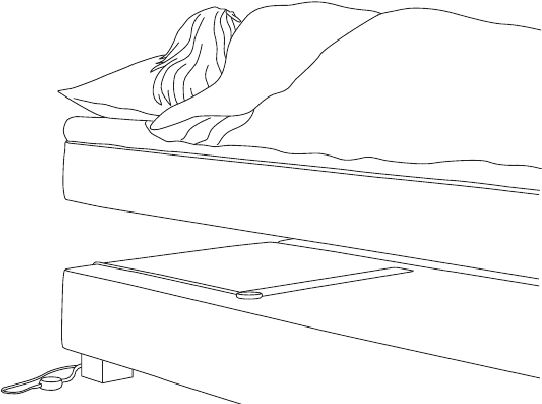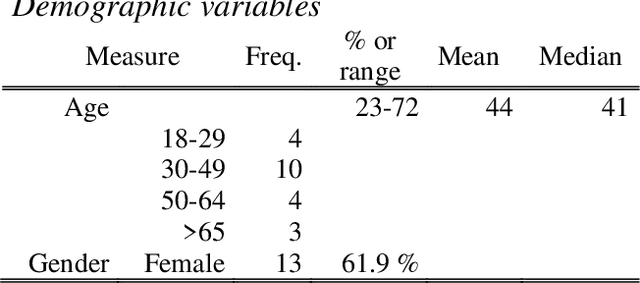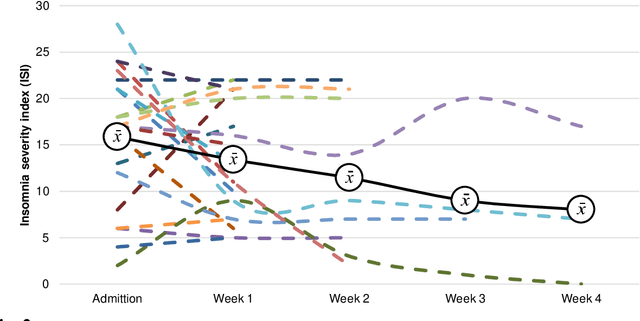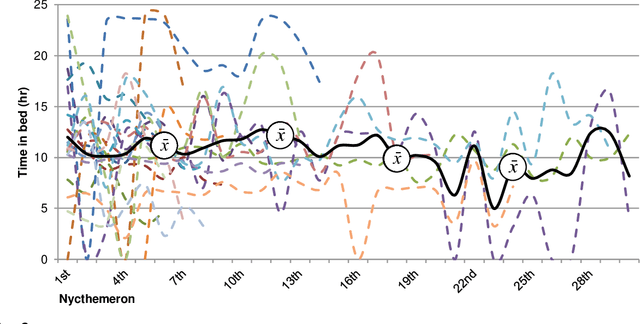Real-time unobtrusive sleep monitoring of in-patients with affective disorders: a feasibility study
Paper and Code
Nov 22, 2023



Sleep and mental health are highly related concepts, and it is an important research and clinical priority to understand their interactions. In-bed sensors using ballistocardiography provide the possibility of unobtrusive measurements of sleep. In this study, we examined the feasibility of ballistocardiography in measuring key aspects of sleep in psychiatric in-patients. Specifically, we examined a sample of patients diagnosed with depression and bipolar disorder. The subjective experiences of the researchers conducting the study are explored and descriptive analyses of patient sleep are subsequently presented. The practicalities of using the ballistocardiography device seem to be favourable. There were no apparent issues regarding data quality or data integrity. Of clinical interest, we found no link between length of stay and reduced time in bed (b = -0.06, SE = 0.03, t = -1.76, p = .08). Using ballistocardiography for measurements on in-patients with affective disorders seems to be a feasible approach.
 Add to Chrome
Add to Chrome Add to Firefox
Add to Firefox Add to Edge
Add to Edge